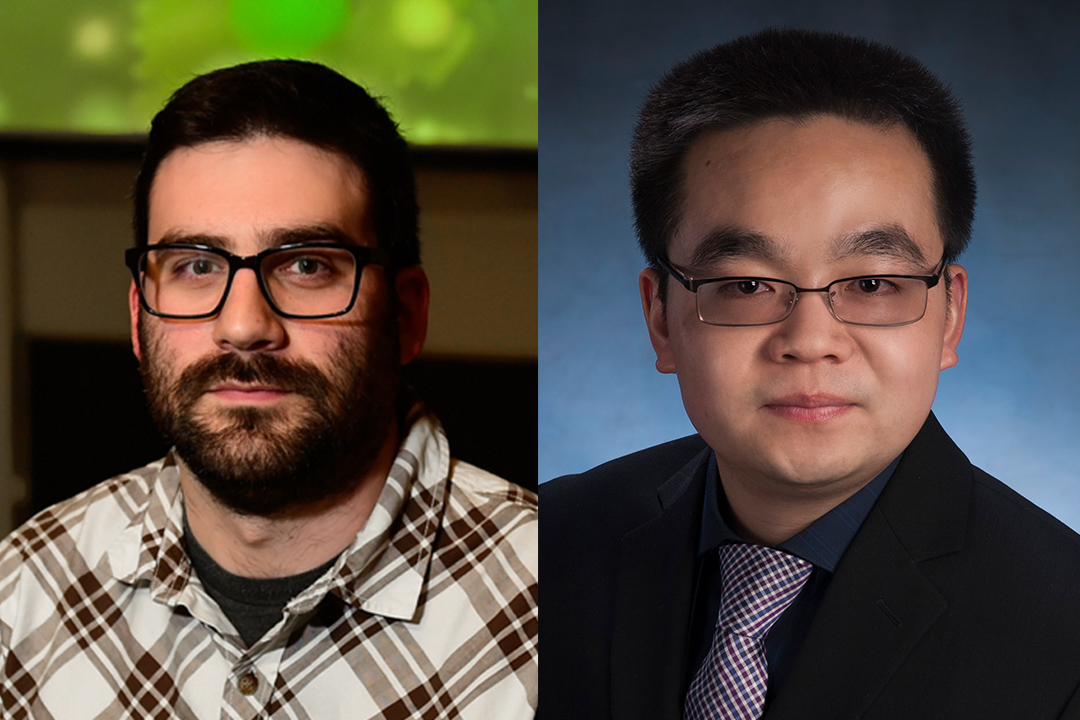
USask awarded CFI funding to research new antibiotics and food products
SASKATOON – Two researchers at the University of Saskatchewan (USask) have been awarded a total of $274,119 by the Canada Foundation for Innovation (CFI) to buy equipment crucial to studies into antibiotics and novel food products.
The grants announced today, from the CFI’s John R. Evans Leaders Fund, could lead to
“This federal investment in sophisticated equipment will help USask’s talented researchers pursue innovative research that will improve animal and human health,” said Vice-President Research Karen Chad. “USask is at the forefront of research into food science and veterinary medicine, and these awards will advance the pursuit of important work in these fields.”
Antonio Ruzzini, a researcher in the Western College of Veterinary Medicine, has been awarded $109,619 for equipment to grow and study bacteria present in humans and animals. The new equipment will help him
Ruzzini’s team also intends to use the Canadian Light Source synchrotron, a national research facility of USask, for his research.
“This investment enables us to rapidly investigate how bacteria contribute to the health and disease of animals, including humans,” said Ruzzini, assistant professor in the veterinary microbiology department.
“By studying bacterial molecules in a more natural context, we hope to accelerate the early stages of our antibiotic discovery program. These include molecules that may have been previously overlooked or are produced by bacteria that were neglected by conventional drug discovery pipelines in the past.”
Yongfeng Ai, of the College of Agriculture and Bioresources, has been awarded $164,500 by CFI for state-of-the-art equipment to extrude and study carbohydrates for use in human food and animal feed.
Carbohydrates—including simple sugars, starch
“This CFI support is essential to my research program which addresses research and development challenges in carbohydrate chemistry and nutrition,” said Ai, who holds a Saskatchewan agriculture ministry endowed research chair in carbohydrate quality and utilization.
“This grant will help me work collectively with the private sector to generate more value from cereals and pulses through processing.”
Ai’s research could generate economic returns for the agriculture and agri-food sector in Saskatchewan. He noted that his work fits well with the scope of the federally funded Protein Industries Canada Supercluster, a Western Canadian consortium which uses plant genomics and novel processing technology to increase the value of key Canadian crops such as canola, wheat
Ai has already made advances in the study of carbohydrate chemistry and in the processing of cereals and pulses. The new equipment will allow him to extrude starches from wheat, maize, pulses
The investment in Ai’s project will also make possible development of low-glycemic pet food from Canadian pulses. In the long term, his research could lead to the generation of biodegradable foams, films and plastics from carbohydrate biomass.
The CFI’s John R. Evans Leaders Fund is a strategic investment fund designed to help institutions attract and retain the very best of today’s and tomorrow’s researchers. Both research projects will involve USask students.
“The Canada Foundation for Innovation has ensured Canadian researchers have the tools they need to push the frontiers of knowledge in all disciplines since 1997,” said Kirsty Duncan, Canada’s Minister of Science and Sport. “Today’s announcement of stable, long-term funding will help Canada continue to be an international destination for research and innovation.”
-30-
For more information, contact:
Jennifer Thoma
Media Relations Specialist
University of Saskatchewan
306-966-1851
jennifer.thoma@usask.ca
Article re-posted on .
View original article.
